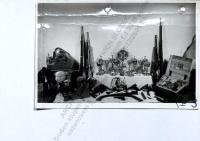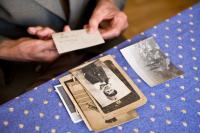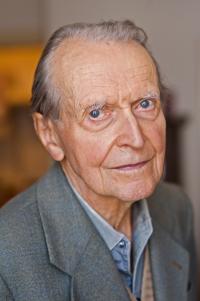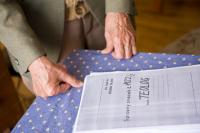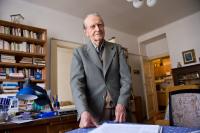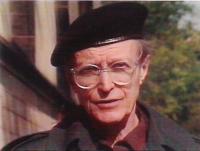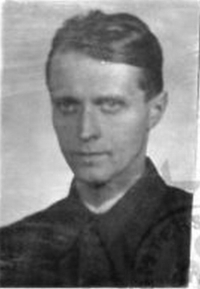Quotidie morior - I´m dying anytime

Stáhnout obrázek
Mr. Oto Mádr was born on February 15th 1917 in Prague. His parents were Anna and František Mádr. After he finished grammar school he was admitted to the Archbishop Gymnasium (the so called small seminary) located in Prague-Bubeneč. After his graduation he continued his studies at Prague’s Faculty of Theology, which he finished as a Theology training school, because the Faculty has been closed down during the occupation. His ordination was postponed due to his health condition, for the following year. Therefore his ordination was in 1942. He started off his priest activity in Zásmuky village at first and then he began to work as an administrator in Stříbrná Skalice town. After the end of the war he was given the opportunity to become an assistant at the Prague Faculty of Theology. He was one of the last lucky ones who went to Rome for a study tour. There he achieved his Theology licentiate. After his return in 1949 he submitted his academic dissertation and soon after that was certified as the last person at the old Faculty of Theology in Prague. The Faculty moved to the town of Litoměřice, where it came under permanent government supervision and it was operated by quisling priests. Mr. Mádr has already become an eminent person of the catholic life in the mean time. Inspired by personality of Father Tomislav Kolakovič he helped establish the University student’s bees. These were focused on the systematic deeper handwriting study. The rules of the catholic religion and its assertion in everyday life have been discussed there as well. During the early 50‘s Oto Mádr served in the Capuchin Monastery of Virgin Maria in Prague-Hradčany. Lots of the Theology students attended his services regularly. This fact awoke the StB interests so Oto Mádr was forced to start to hide soon. He found his shelter in the gracious sisters of Saint Bartholomew monastery when the superiors offered him help. Here Oto Mádr decided to leave the country and to serve continuously from abroad. Unfortunately he was caught by the StB agents in 1951 while on the run. He was questioned in Prague-Ruzyně, Bartolomějská Street. Staged process with him was held in the summer of 1953 in Brno. Oto Mádr was seen there as the leader of the assembled group of people. His sentence was: for life. He experienced such prisons as Ruzyně, Mírov prison or Valdice prison. His punishment was gradually reduced among various amnesties to 20-25 years. In 1966 he was finally eligible for parole. That was six years after the big Novotný´s amnesty (former President - translator’s note), when many of the political prisoners left the prisons. In prison he was one of the philosophical creators (aside form Josef Zvěřina) of the so-called ´Prison University´. The entire lecture courses were held here during the primitive work. Later after his release, Oto Mádr didn’t receive the state approval to perform clerical work and worked as an auxiliary force in the hospital. Later he also worked in the Prague Museum archive. He has a significant role in the establishment of the so-called Conciliar renewal in 1968 - that was during the Prague’s Spring festival. During the normalization period he began to publish samizdat Theological publications, which are nowadays famous theological revue. Monsieur Oto Mádr was a well recognized scientific theorist around Europe in the field of moral theology and belonged to the important authorities of the Catholic Church. Oto Mádr died on February 27, 2011 in Prague.

